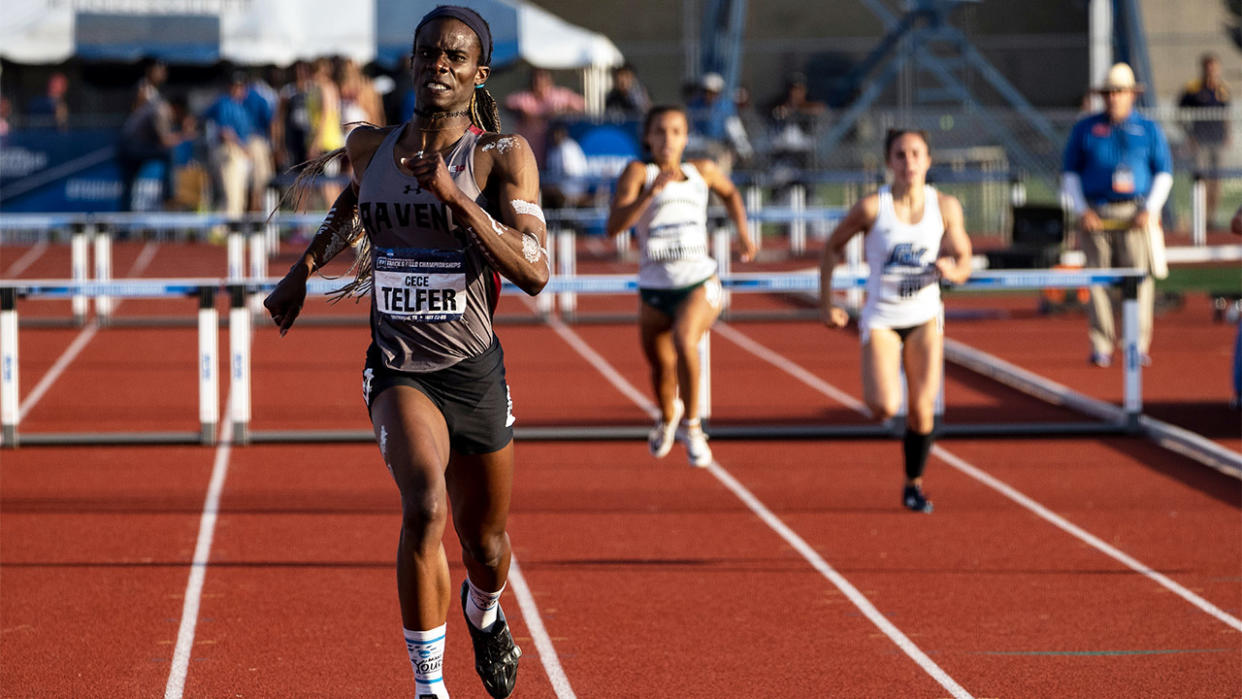'I have a disadvantage': Transgender champion's new claim

Athletic track star CeCe Telfer has opened up on the physical challenges she faces competing as a transgender woman in college.
Telfer, a transgender woman who was born a male called Craig, was previously ranked outside the top 200 male runners in college athletics before her transition.
Last month, running for Franklin Pierce University, she won the women’s 400m hurdles by more than a second at the NCAA Division II championship.
But speaking on ESPN’s Outside The Lines she said there were many challenges she faces to compete as a transgender woman.
“If anything, me competing against cisgender females is a disadvantage,” she said.
“My body is going through so many medical implications ... It's going through biochemistry changes. So, being on hormone replacement therapy [results in] muscle depletion ... your muscles are deteriorating.
“You lose a lot of strength because testosterone is where you get your strength, your agility. So I have to work twice as hard to keep that strength, and if I slack a day, that's like three days set behind. So ... I have to keep up all my workouts ... I can't drink ... I can't eat unhealthy, or else it's gonna impact me harder.”
"If anything, me competing against cisgender females is a disadvantage.."@FPUathletics track star CeCe Telfer talks about the physical challenges she faces while competing as a transgender woman. pic.twitter.com/9VhlOVA70V
— Outside The Lines (@OTLonESPN) June 13, 2019
Following her championship win, Aussie Olympian Tamsyn Manou expressed her concern and said something needed to be done to address the ever-present issue.
“The female category isn’t being protected enough in elite women’s sport at the moment,” Manou told Ben Fordham on 2GB.
“I know that it’s a grey area… but it really concerns me.
“I think that it’s important that people understand it’s not about gender identity.
“This is an issue that is surrounding what you were born as, biologically what your sex is.
“There is just way too much advantage with a male competing against a female.”
Fellow Aussie Olympian Jane Flemming agreed.
Under NCAA rules, males transitioning to female can compete as women if they suppress their testosterone levels for a calendar year.


